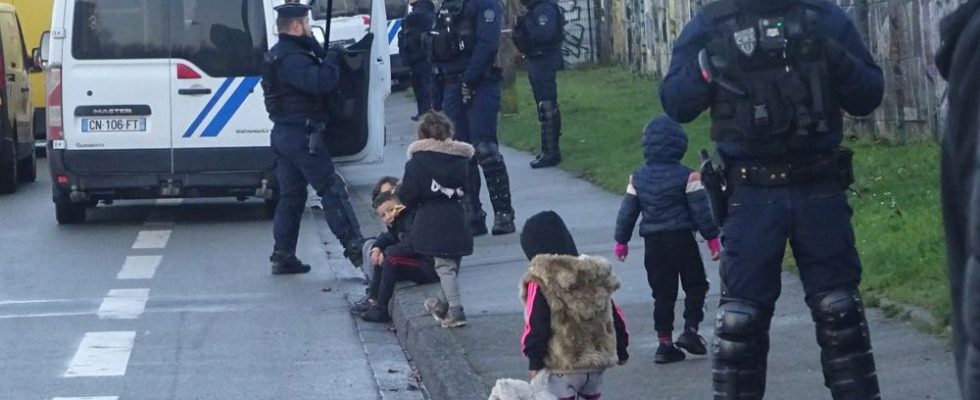The number of homeless people is increasing, as are the number of evacuations. The Observatory of evictions from informal living spaces (squats, shantytowns and camps) has just published its 5th annual report on the subject. Between November 1, 2022 and October 31, 2023, it recorded 1,111 evictions on the national territory, including 729 for the northern coast (Calais and Dunkirk), each place of life representing on average 130 people.
“Expulsions are still too numerous and mostly implemented without fundamental rights being respected,” denounces Manuel Domergue, director of studies at the Abbé Pierre Foundation, who notes “an increasingly repressive attitude from public authorities.”
No accommodation or rehousing solution
According to him, the context is particularly alarming. “More than 8,000 people are turned away every evening by the 115 [numéro d’urgence sociale], this is unheard of, he assures. And in 85% of cases, expulsions do not give rise to any accommodation or rehousing solution, apart from three nights in social hotels, forcing people to wander. »
First territory concerned: the northern coast which alone concentrates 70% of the operations carried out by the police, or nearly 70,000 people affected. Evictions directed increasingly violently by law enforcement, according to the report. “These are dry expulsions in 97% of cases, without diagnosis or support solutions,” adds Manuel Domergue.
And to cite an example “not to be followed”, in Wasquehal, in the metropolis of Lille. “A slum established since 2017 was evacuated in May,” he says. The prefect, who arrived in 2021, broke off dialogue with the associations and decided to expel the 50 people, half of whom were children. Nothing has been resolved. Since then, three other, smaller slums have formed elsewhere. And the education of minors was interrupted. »
“Total absence of psychological respite”
The situation of children is also highlighted more particularly by the report. “Many unaccompanied minors (UMA) testify to having been victims of police violence (shooting of LBDs, repetitive and unjustified use of tear gas, verbal attacks of a racist nature, etc.)”, we can read concerning the chapter on the northern coast . “However, these expulsions increase the impact on the mental health of children who are constantly on alert,” raises Julie Brémont, coordinator for 5 associations dealing with unaccompanied minors in Calais and Dunkirk.
Thus it calls into question “instability and permanent insecurity”. “A psychologist notes in these young people a total absence of psychological respite. They live in the present moment without being able to project themselves. Between the ages of 2 and 10, they regularly reenact arrest scenes,” says Julie Brémont. Contacted on the subject, neither the prefecture of the North nor that of Pas-de-Calais responded.
A school break?
In view of these findings, the Observatory’s associations call for “a resorption policy which takes into account the best interests of children, the first victims of expulsions (…) and guarantees their fundamental rights. “. They demand in particular “a suspension of these expulsions during the school year in order to (…) guarantee educational continuity”.
“This school truce has already proven its worth on the ground,” the report specifies. Implementation in Marseille, thanks to the collaboration between the associative fabric, the municipality and the prefecture, it shows encouraging results. »

